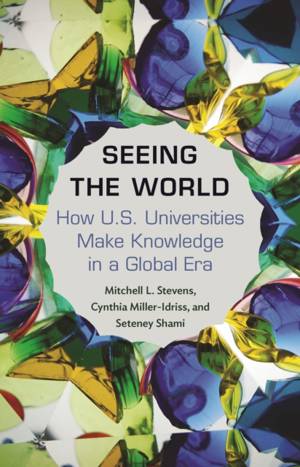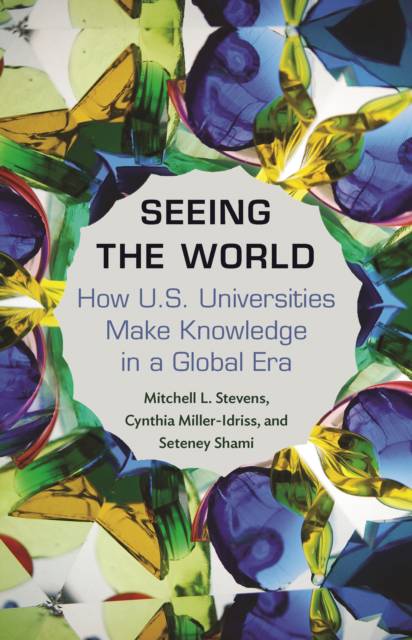
- Retrait gratuit dans votre magasin Club
- 7.000.000 titres dans notre catalogue
- Payer en toute sécurité
- Toujours un magasin près de chez vous
- Retrait gratuit dans votre magasin Club
- 7.000.0000 titres dans notre catalogue
- Payer en toute sécurité
- Toujours un magasin près de chez vous
Seeing the World
How Us Universities Make Knowledge in a Global Era
Mitchell Stevens, Cynthia Miller-Idriss, Seteney Shami
54,95 €
+ 109 points
Format
Description
An in-depth look at why American universities continue to favor U.S.-focused social science research despite efforts to make scholarship more cosmopolitan
U.S. research universities have long endeavored to be cosmopolitan places, yet the disciplines of economics, political science, and sociology have remained stubbornly parochial. Despite decades of government and philanthropic investment in international scholarship, the most prestigious academic departments still favor research and expertise on the United States. Why? Seeing the World answers this question by examining university research centers that focus on the Middle East and related regional area studies. Drawing on candid interviews with scores of top scholars and university leaders to understand how international inquiry is perceived and valued inside the academy, Seeing the World explains how intense competition for tenure-line appointments encourages faculty to pursue "American" projects that are most likely to garner professional advancement. At the same time, constrained by tight budgets at home, university leaders eagerly court patrons and clients worldwide but have a hard time getting departmental faculty to join the program. Together these dynamics shape how scholarship about the rest of the world evolves. At once a work-and-occupations study of scholarly disciplines, an essay on the formal organization of knowledge, and an inquiry into the fate of area studies, Seeing the World is a must-read for anyone who cares about the future of knowledge in a global era.Spécifications
Parties prenantes
- Auteur(s) :
- Editeur:
Contenu
- Nombre de pages :
- 184
- Langue:
- Anglais
- Collection :
- Tome:
- n° 14
Caractéristiques
- EAN:
- 9780691202938
- Date de parution :
- 28-04-20
- Format:
- Livre broché
- Format numérique:
- Trade paperback (VS)
- Dimensions :
- 155 mm x 229 mm
- Poids :
- 272 g

Les avis
Nous publions uniquement les avis qui respectent les conditions requises. Consultez nos conditions pour les avis.






